Today, I want to talk about a question that has been floating around the blogosphere for quite some time: does affiliate marketing actually work?.
In a nutshell, affiliate marketing is a way for bloggers and other online content creators to make money by promoting other people’s products or services.
You, as the affiliate marketer, receive a commission for each sale made through your unique referral link.
Sounds simple, right? Even though affiliate marketing is easy, it takes a ton of time and effort.
The most beginner-friendly way to start affiliate marketing is by starting a blog.
So in this guide, we consider affiliate marketing blogs and leave those more advanced/risky strategies like ads or viral social media posts for another day.
Feel free to watch my video about this topic.
Expectations vs Reality
I’m sure you’ve come across those online guides claiming that affiliate marketing is a 100% passive income source.
Furthermore, they say you can set up a full-fledged affiliate business in just a couple of days.
Well, my friend, let’s be real for a moment: if it were that easy, wouldn’t everybody be doing it?
The truth is like any other venture, affiliate marketing requires hard work, dedication, and time.
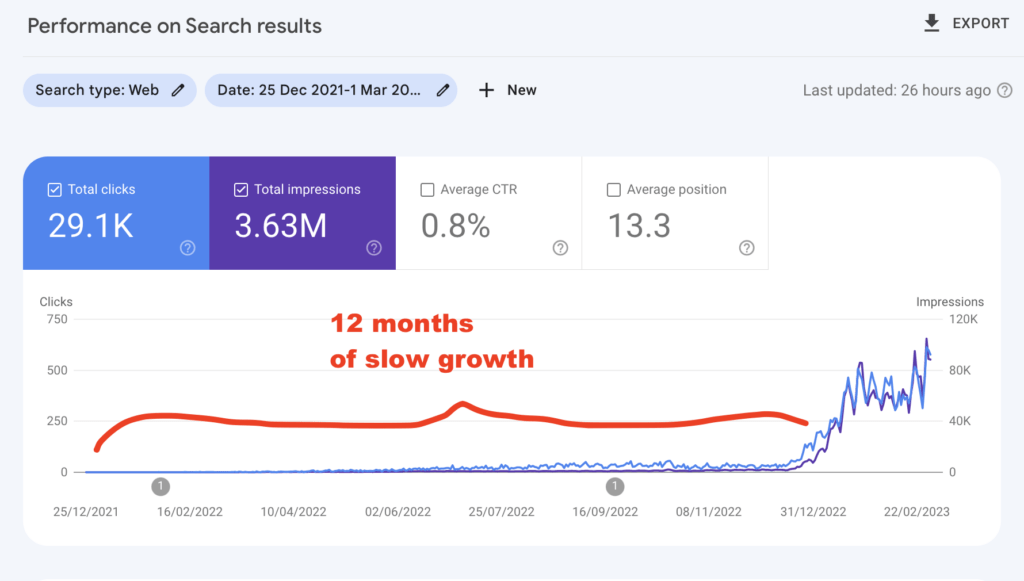
Don’t be fooled by the promise of quick, effortless money—building a successful affiliate marketing business takes anywhere from 6 to 12 months of consistent effort.
To be an effective affiliate marketer, you need to create valuable, relevant content that attracts and engages your target audience.
If you’re up for the challenge and willing to put in the work, affiliate marketing can indeed be a rewarding opportunity.
Just remember: there’s no such thing as an overnight success, and like any other business, it takes time and effort to reap the rewards.
But once you get the ball rolling, you might get a really nice passive income from affiliate marketing.
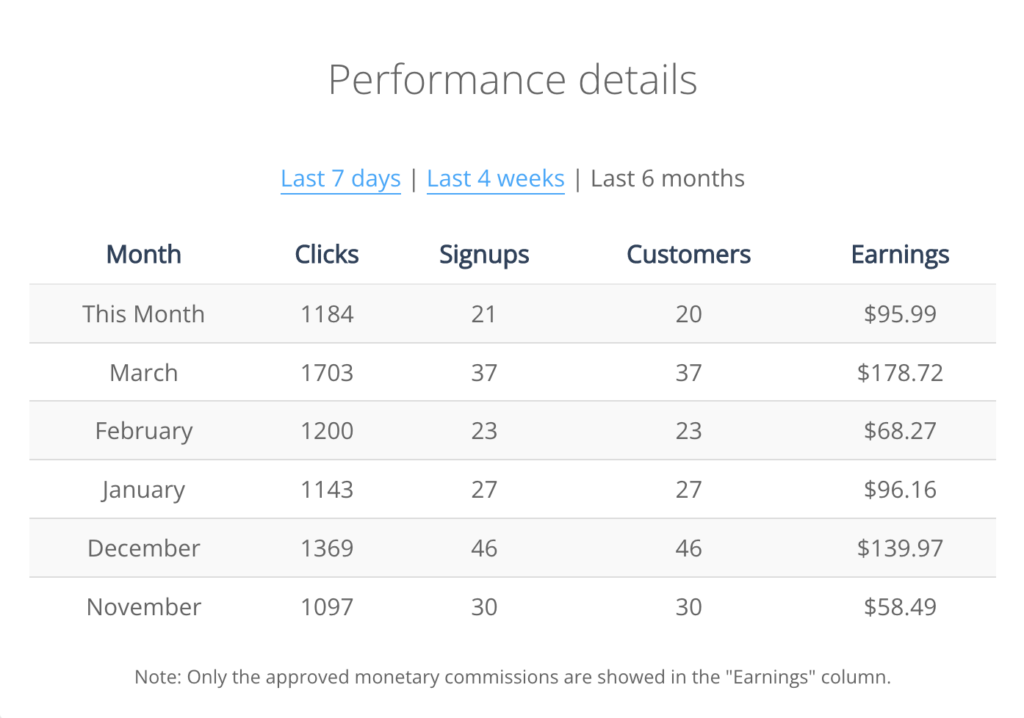
How Does Affiliate Marketing Work?
Alright, let’s dive deeper into what affiliate marketing really is and how it works in practice.
At its core, affiliate marketing is a process of stepping between a customer and a seller, acting as a bridge that connects the two.
As an affiliate marketer, your goal is to create content that ranks high on search engines for queries that potential customers are searching for, such as “Best Running Shoes for Kids.”
This is typically done by writing informative, engaging, and comprehensive blog posts or articles that provide valuable insights and recommendations to your audience.
Within these blog posts, you’ll include affiliate links to the products you’re recommending.
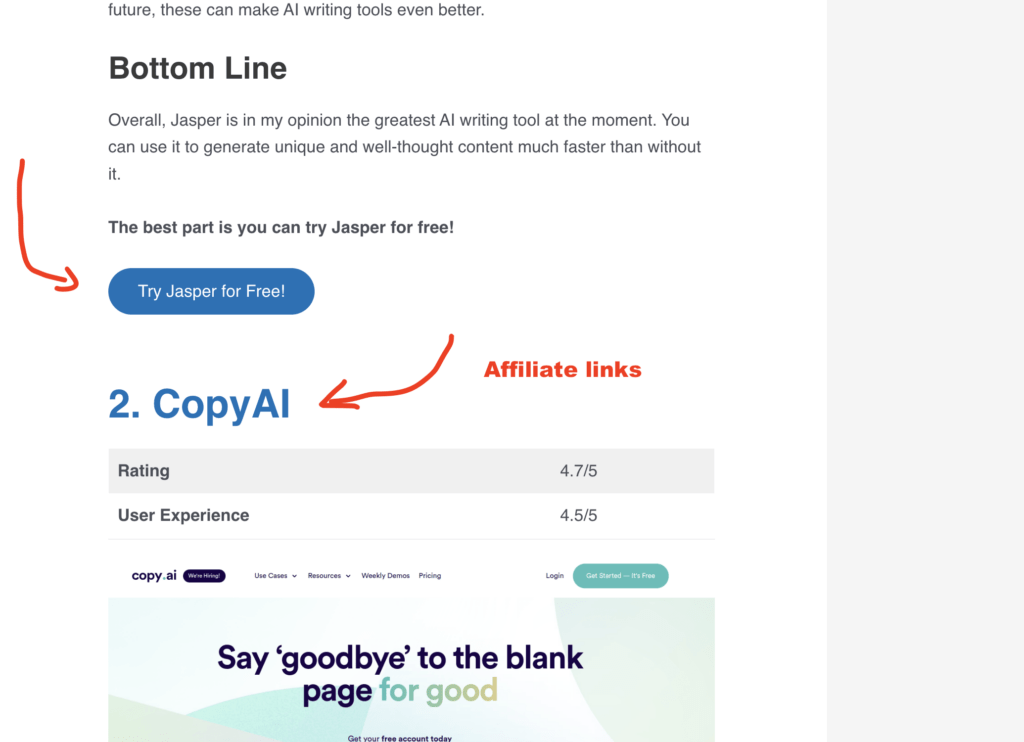
These are unique links that, when clicked by a visitor, will take them to the product page on the seller’s website.
If the visitor makes a purchase after clicking on your affiliate link, you’ll earn a commission for the sale.
To achieve this, it’s essential to create content that genuinely helps your audience make informed decisions about the products they’re interested in.
By providing valuable information and building trust with your readers, you’re more likely to drive conversions and generate affiliate revenue.
How to Build a Successful Affiliate Blog?
Now, let’s talk about what it really takes to build a successful affiliate marketing blog.
First and foremost, picking a profitable niche and launching your own website are essential steps.
However, that’s just the beginning—the hard work starts after that.
To make your niche a better space, you need to write a ton of informational content that’s better than anything else out there.
Usually, this means your content should be longer and more comprehensive than any of your competitors’ articles.
For instance, one of my best-performing articles is 14,000 words in length.

Of course, that doesn’t mean you always need to write content that long. But that just gives you an idea of what it sometimes takes.
Nonetheless, by frequently creating high-quality content, you’ll build authority and trustworthiness for your site.
This can lead search engines to rank your content higher, ultimately driving more traffic to your site.
Once you’ve published at least 50-100 blog posts within your niche and get roughly 10,000 monthly visitors, you can start focusing on writing those money-making affiliate posts.
I wrote more than 450 blog posts on my site, codingem.com, which makes up to $10,000 in affiliate revenue every month.
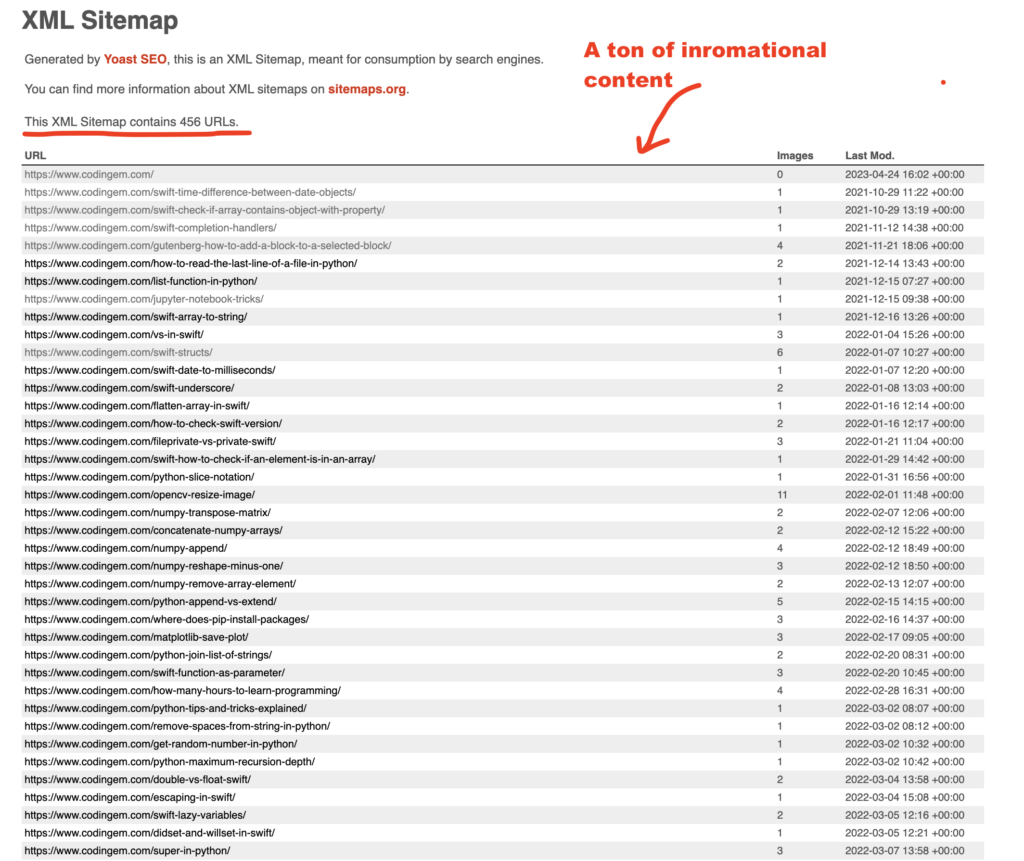
It’s quite funny if you think about it. The actual affiliate marketing starts when you’ve spent 6-12 months of full-time work building your site’s authority!
Why Does It Take So Long?
Now that you understand how long it takes before you can start doing affiliate marketing, you might wonder why. Could there be a shortcut to success?
Unfortunately, there are no shortcuts or growth hacks.
Let’s talk about search engines and why establishing authority in your niche is so important for ranking your affiliate posts high in search results.
How Search Engines Work
Search engines like Google have one primary goal: to provide users with the most relevant and useful information in response to their search queries.

To achieve this, search engines use complex algorithms that evaluate various factors, such as the quality of the content, relevance to the search query, website authority, and user experience, among others.
Because anyone can write a blog post that ranks high, a trust-based system needs to exist.
It’s much less likely that a high-authority site with a ton of quality content is trying to provide searchers with useless/harmful information, right?
Establishing Authority and Trust with Search Engines
Before search engines like Google trust your site and rank your affiliate posts high in search results, you need to establish your blog as an authority in your chosen niche.
This means consistently producing high-quality, informative, and engaging content that genuinely helps your audience.
When you create valuable content, people are more likely to share and link to your blog posts, which, in turn, helps to build your site’s authority.
As your site gains more authority, search engines will start to view it as a trusted source of information and will be more likely to rank your content higher in search results.
This all makes sense. If you ask for information, you want to ask someone that actually knows what they’re talking about.
The Importance of Patience and Persistence
Building authority and trust with search engines takes time—there’s simply no way around it.
No matter how good your blog is, it takes a considerable amount of time and effort to establish your site as an authority in your niche and start ranking high.
This is why patience and persistence are crucial in affiliate marketing. You need to consistently produce high-quality content in your niche.
Over time, as your site’s authority grows, you’ll begin to see improvements in your search rankings and affiliate revenue.
Why Do Most Affiliate Marketers Fail?
So, with all this in mind, why do so many affiliate marketers fail?
The truth is, a lot of people approach affiliate marketing with the wrong mindset. It’s crucial to treat affiliate marketing like a full-on online business, rather than a get-rich-quick scheme.
While affiliate marketing can eventually provide passive income, it takes years of hard and strategic work to build an affiliate site that consistently generates traffic and commissions.
Many aspiring affiliate marketers give up too soon or don’t invest enough time and effort into creating valuable content.
Here are some common reasons why affiliate marketers fail:
#1 Lack of Patience
Building a successful affiliate marketing business takes time. Many people expect immediate results and give up when they don’t see them.
Expect to spend at least 500-1,000 hours writing blog posts before seeing significant results.
Also, don’t just work hard but also smart.
Write only about topics that you have a chance to rank high for. Do thorough research on your competition before writing a blog post.
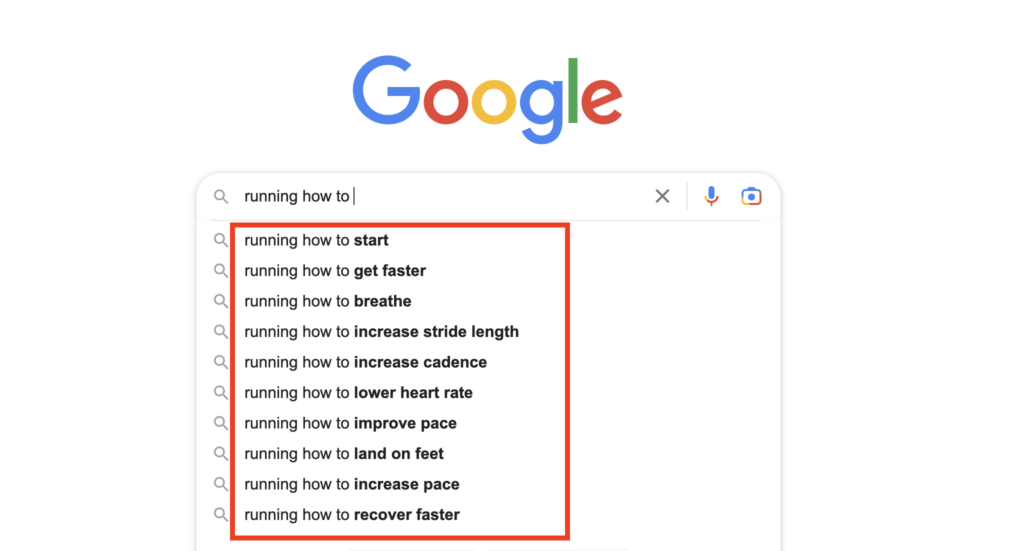
#2 Insufficient Planning
Without proper planning and strategy, it’s easy to lose focus and waste time on unproductive tasks.
Carefully choose a niche that you don’t burn out writing about.
Make sure there is demand for your niche.
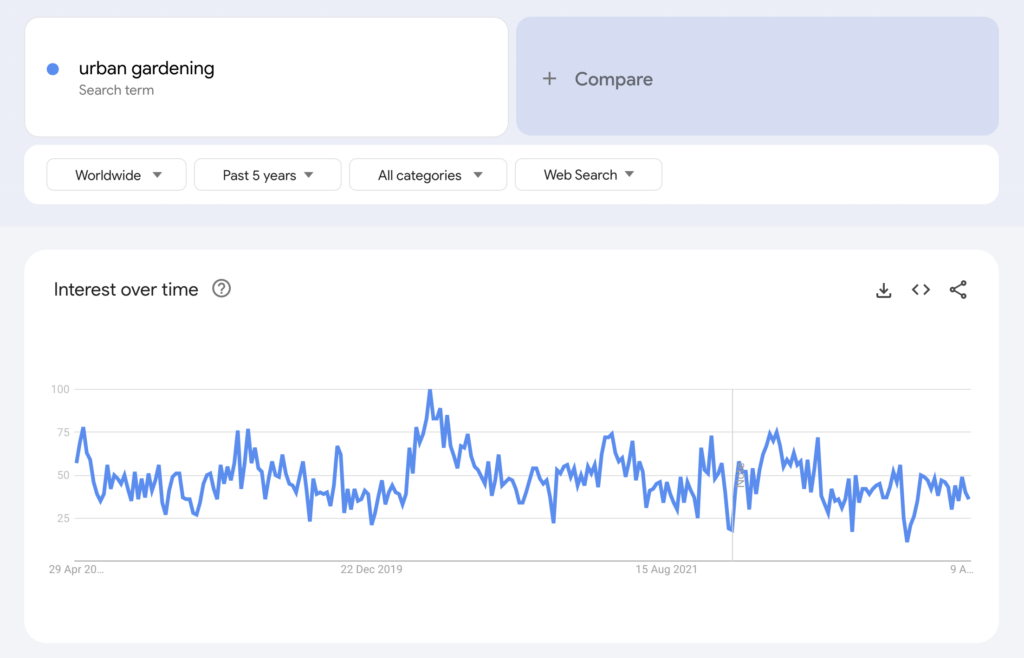
Make sure there are affiliate programs in the niche.

Last but not least, the niche/blog post topic cannot be too competitive! Make sure there’s room for your blog posts.

#3 Poor Content Quality
Content is the backbone of affiliate marketing.
Failing to produce high-quality, engaging content can result in low traffic and a lack of trust from your audience.
Treat every blog post like a small business. It needs to solve a problem better than anyone else on the internet.
If your blog post is not the best resource, Google and other search engines won’t place it high on search results.
Once again, check your competition and the quality of blog posts in the top 10 search results. Write a post that’s much better than any of those!
#4 Not Understanding Your Audience
Know your audience’s needs. Don’t spend time on solving problems that no one cares about.
Also, when it’s time to start promoting affiliate products, step in the shoes of your visitors. Spend time thinking “Do these people really need this?”
Use common sense.
For example, sometimes, if there’s a free solution, it might not be a good idea to force a paid one on your audience. On the other hand, part of marketing is selling a product even when cheaper alternatives exist 😉
Also, think about a blog post “How to tie shoelaces”.
Do you think a post like this would be a good place to sell shoes?
Absolutely not! Someone who’s searching for how to tie shoelaces is not looking to buy shoes.
It’s essential to approach affiliate marketing with a long-term mindset, dedicate time and effort to creating high-quality content, promote your site effectively, and engage with your audience.
Be prepared to put in years of hard and strategic work to build a thriving affiliate site that brings in consistent traffic and commissions.
Wrapping Up
And there you have it, my fellow blogger!
We’ve covered the ins and outs of affiliate marketing, debunked some common misconceptions, and discussed the importance of establishing authority and trust with search engines.
Remember, affiliate marketing is not a get-rich-quick scheme; it takes time, effort, and persistence to build a successful business. 🚀
As long as you treat your affiliate marketing venture like a genuine online business, focus on creating valuable content, and consistently engage with your audience, you’ll be well on your way to success. 😊🌟
Keep in mind that the journey might be challenging and, at times, even frustrating.
But with patience, determination, and a willingness to learn and adapt, you can create a thriving affiliate marketing business that brings you both personal satisfaction and financial rewards. 🌱📈
So, don’t be discouraged by the challenges ahead. Embrace them, keep learning, and most importantly, enjoy the journey! After all, we’re in this together, one blogger to another. 🤗💪
Best of luck, and happy blogging! 🎉💻
